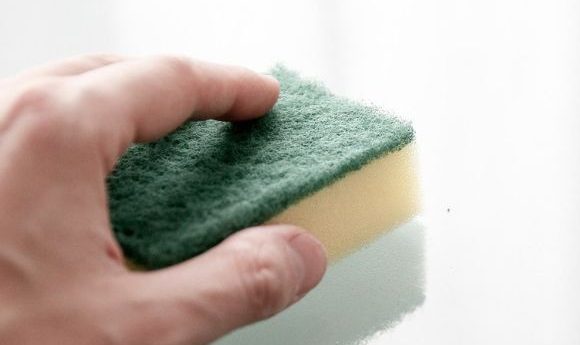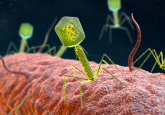Could your kitchen sponge contain the solution to antibiotic resistance?

As the threat of antibiotic resistance increases, bacteriophages may prove useful in fighting bacteria that cannot be killed by antibiotics alone.
Students in an undergraduate research class at the New York Institute of Technology (NY, USA) isolated bacteria from used kitchen sponges and then used this bacteria as bait to find phages that could attack it. Two students successfully discovered phages that infect bacteria living in their kitchen sponges. “Our study illustrates the value in searching any microbial environment that could harbor potentially useful phages,” commented Life Sciences student, Brianna Weiss.
The researchers decided to “swap” these two phages and see if they could cross-infect the other’s isolated bacteria. Interestingly, the phages did kill one another’s bacteria. “This led us to wonder if the bacteria strains were coincidentally the same, even though they came from two different sponges,” continued Weiss.
-
Metals help bacteriophages kill multi-drug resistant bacteria
-
Antibiotic resistance in the human gut microbiome
-
Antibiotics can increase bacterial growth
The DNA of both isolated strains of bacteria were compared and identified as members of the Enterobacteriaceae family. Although the strains are closely related, further biochemical testing revealed chemical variations between them.
“These differences are important in understanding the range of bacteria that a phage can infect, which is also key to determining its ability to treat specific antibiotic-resistant infections,” explained Weiss. “Continuing our work, we hope to isolate and characterize more phages that can infect bacteria from a variety of microbial ecosystems, where some of these phages might be used to treat antibiotic-resistant bacterial infections.”
The full study was presented on a poster at ASM Microbe 2019 (San Francisco, CA, USA, 20-24 June).





